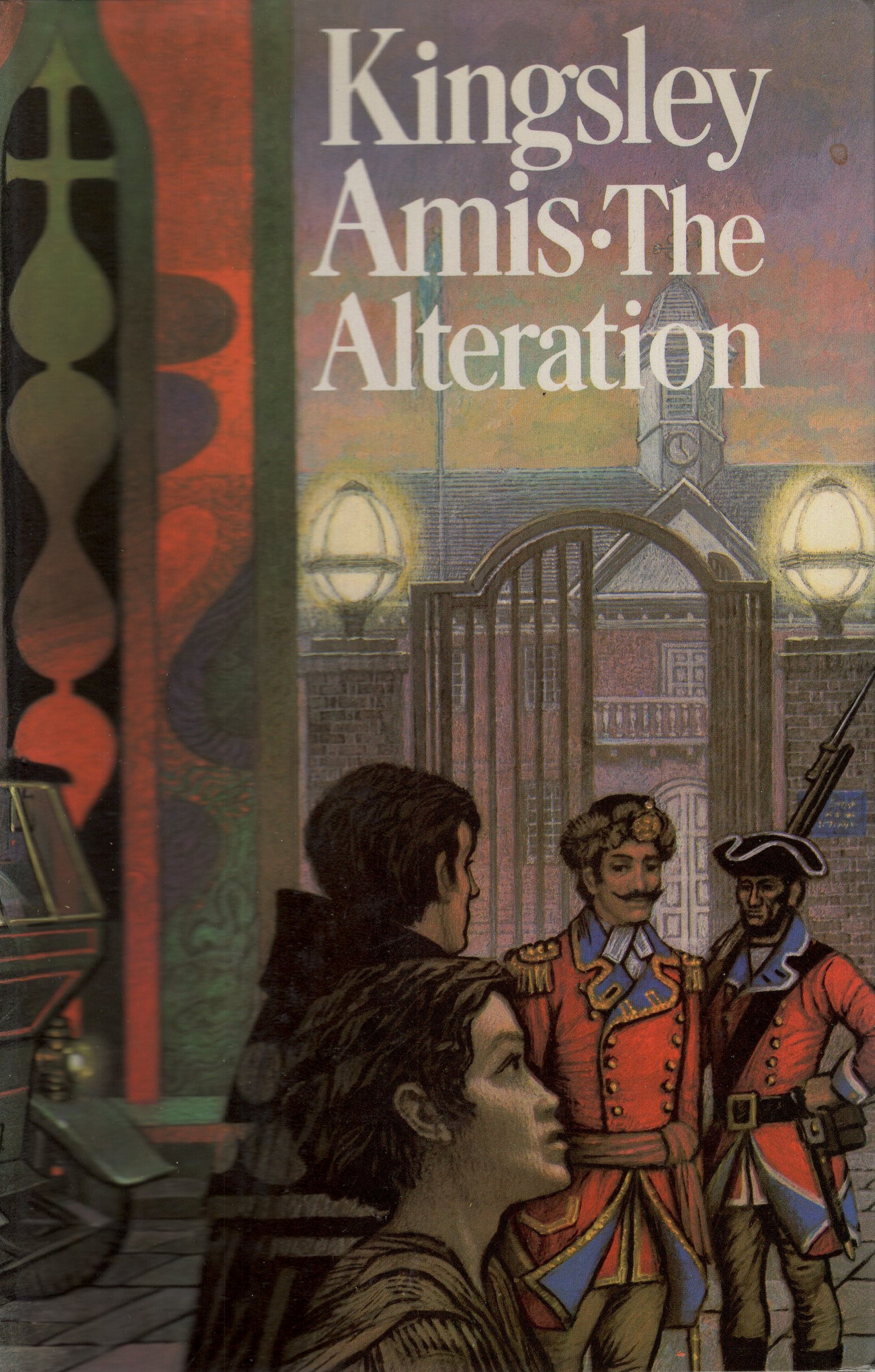Hardcover, 208 pages
English language
Published October 1976 by Jonathan Cape.

Hardcover, 208 pages
English language
Published October 1976 by Jonathan Cape.
It is 1976, but things are not the same. Due to a slight alteration in history involving Catherine of Aragon, Martin Luther, Thomas More and others, a Holy Victory was won in an event called the War of the English Succession, and today England, like most of the world, is virtually ruled by a Machiavellian Pope who hails from Yorkshire. Piety is rampant, science is a forbidden word and New England is a wild abode of exile for Schismatics and common criminals. A scattering of celebrities slip through this rearrangement of past and present: we recognise Ayer, Professor of Dogmatic Theology, and the French Jesuit J.-P. Sartre, and a mosaic in the immense nave of the Cathedral Basilica of St George at Coverley, England's capital city, turns out to be a Hockney. It is here in the Basilica that Kingsley Amis's startling novel begins. As His Most Devout Majesty, King …
It is 1976, but things are not the same. Due to a slight alteration in history involving Catherine of Aragon, Martin Luther, Thomas More and others, a Holy Victory was won in an event called the War of the English Succession, and today England, like most of the world, is virtually ruled by a Machiavellian Pope who hails from Yorkshire. Piety is rampant, science is a forbidden word and New England is a wild abode of exile for Schismatics and common criminals. A scattering of celebrities slip through this rearrangement of past and present: we recognise Ayer, Professor of Dogmatic Theology, and the French Jesuit J.-P. Sartre, and a mosaic in the immense nave of the Cathedral Basilica of St George at Coverley, England's capital city, turns out to be a Hockney. It is here in the Basilica that Kingsley Amis's startling novel begins. As His Most Devout Majesty, King Stephen III of England and her Empire, is ceremoniously being laid to rest, expert musicians from Rome sit rapt, listening to the high, pure, celestial notes which are coming from the diminutive figure at the end of the nave.
Alas, the 10-year-old chorister, poor Hubert Anvil, is simply the best boy singer in living memory, and the Abbot is soon to propose that he undergo a simple operation to preserve his heavenly voice at the cost of his earthly pleasure. Hubert's pious father agrees to the 'alteration', reassuring the boy that his voice is a special gift from God and that, as he will never experience manhood, he won't miss it. Hubert's more wayward mother is forced to admit that the love of men and women, though less exalted than the love of God, is a very powerful force indeed, and the family confessor, who is also her lover and on overbold foe of authority, has to agree. With his suspicions aroused that the glory of God may not be much compensation for what he will be missing, Hubert questions his experienced brother, who can only suggest that sex is something more wonderful than kissing the charming New Englander, Hilda van den Haag, at the same time as eating ice-cream so delicious that it makes you call aloud. Soon afterwards, Hubert plans his escape — into a world where to be a runaway is a dangerous crime and a deadly sin.